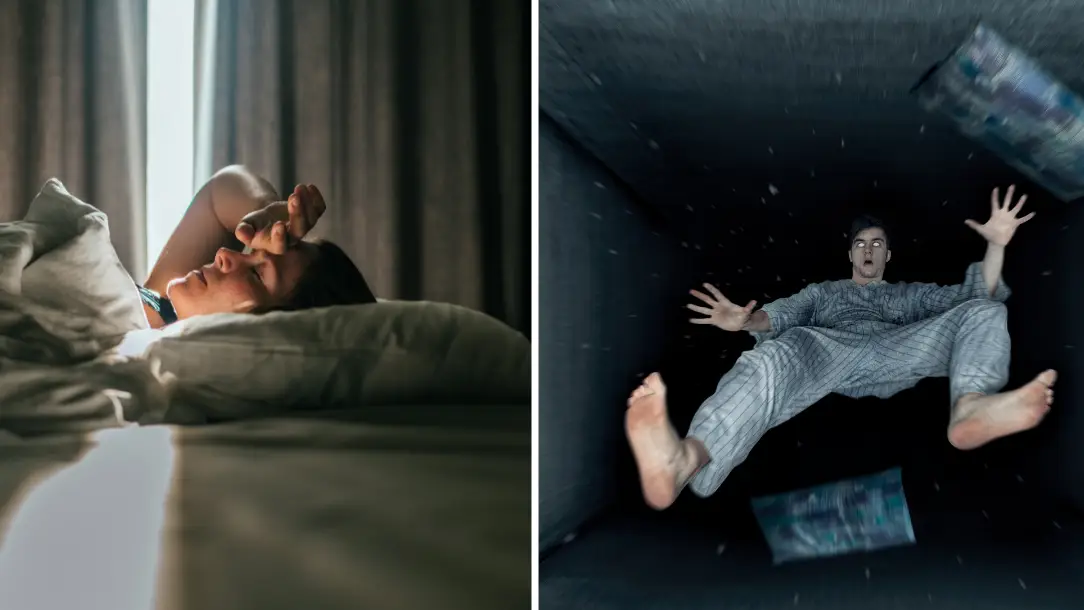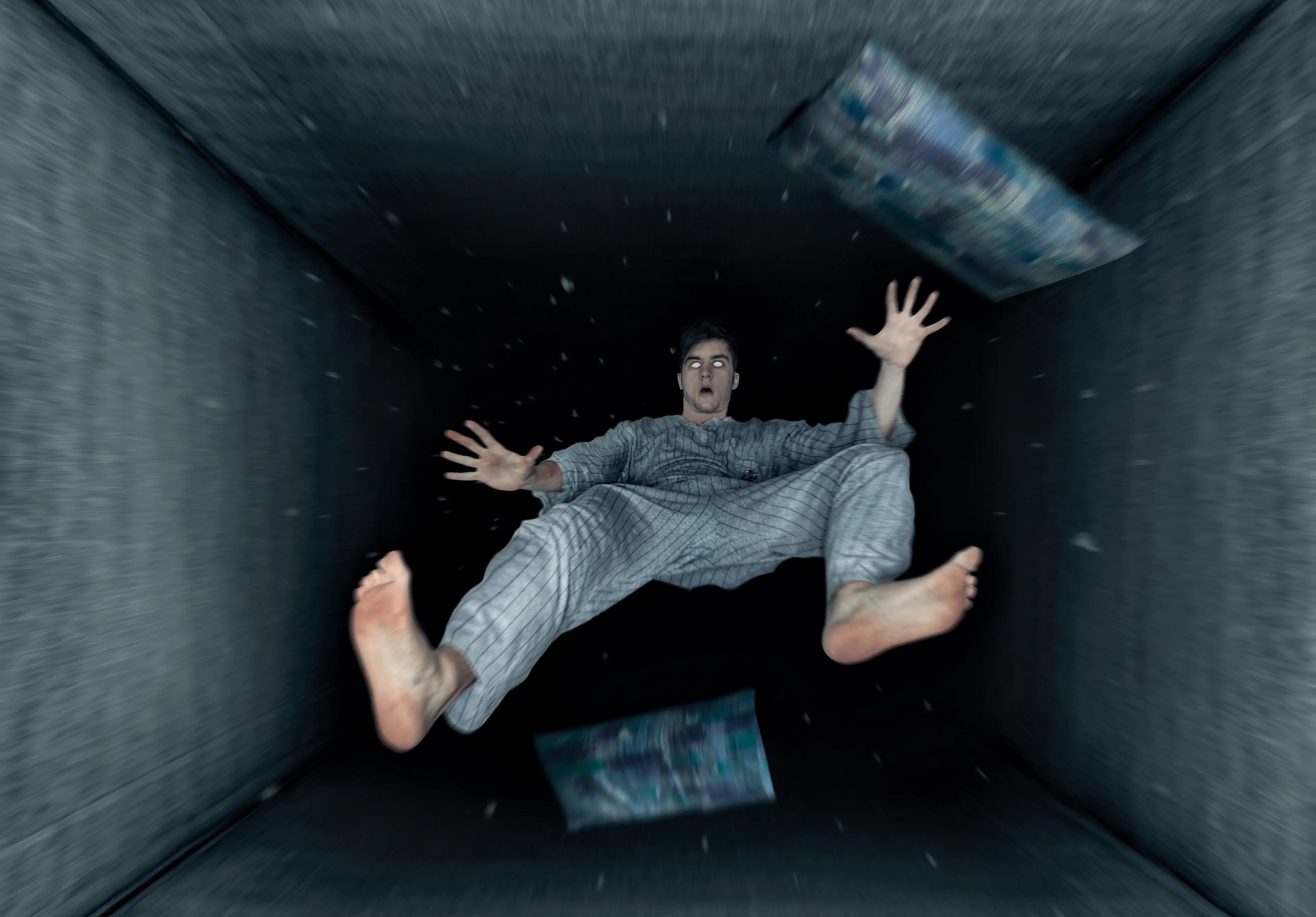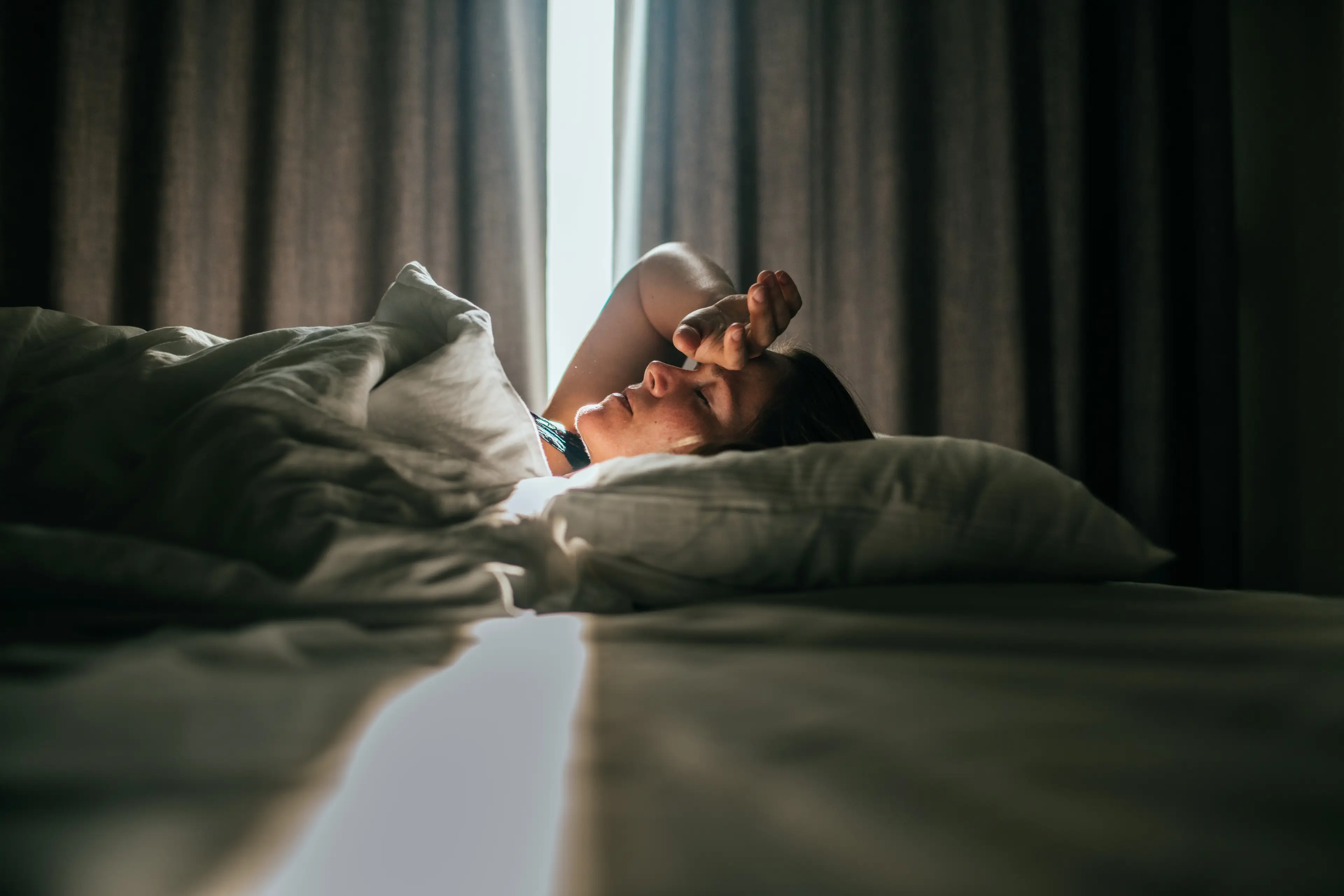
A sleep expert has issued precious advice for those whose sleep is disturbed by some muscle twitching.
Moving your legs while you’re asleep or feeling like you’re about to fall isn’t just something our puppies do. Humans experience the same body twitching — in fact, it’s a pretty common occurrence affecting 70 percent of the population in the US, as explained by Cleveland Clinic.
What is sleep myoclonus?
But what is body twitching exactly? The scientific name for this phenomenon is sleep myoclonus (also known as hypnic myoclonus), and happens when you shift from one sleep phase into another. During these sleep transitions, the body muscles can have spasms called hypnagogic jerks (or hypnic jerks), and are more likely to happen when you’re falling asleep, or during the light stage of sleep that follows this first moment in the sleep cycle.

Why does it happen?
According to sleep disorders specialist Reena Mehra, MD, MS, there are several possible explanations as to why sleep myoclonus is pretty common.
Advert
The most plausible theory is that the body misinterprets the light sleep phase as wakefulness while also recognising that the muscles aren’t moving. The brain then sends a message to the muscles to check in they’re still working so to keep then active as a way to protect the body.
The neurotransmitters released carry the message from your nerve cells, attaching to your muscle protein cells. This attachment signals the cells to act in a certain way, causing your muscles to move.
What can you do to reduce sleep myoclonus?
There are a few tips to follow if you want to improve your sleep hygiene and reduce your proneness to hypnic myoclonus.
Manage your stress
This shouldn’t come as a surprise, as stress is responsible for making most conditions worse.
The goal should be to reduce your stress level before heading to bed, including cutting down on screen time, implementing a sleep routine or practicing meditation, and planning for the next day earlier in the day rather than when you’re in bed.

Reduce your drug and alcohol consumption
Stimulants can increase the chance of having your body twitch when you’re in bed. This happens because drugs and alcohol can prevent you from getting nourishing sleep and enter the deeper phases of the sleep cycle, thus resulting in hypnic jerks or feelings of movement while in light sleep.
Cut down your caffeine intake
Again, no surprises here. Caffeine is known to have a stimulant effect than can hinder your sleep.
Too many cups of coffee won't just keep you awake at night, they can also induce myoclonus if you do manage to fall asleep.
Sleep more
This may seem counterintuitive, but it makes perfect sense if you think about the fact you need to complete a sleep cycle to fell fully rested. If you don’t get your hours in, the lack of sleep can increase the likelihood of twitching.
